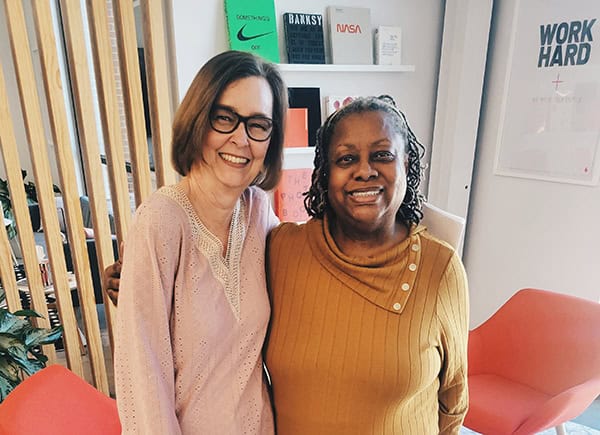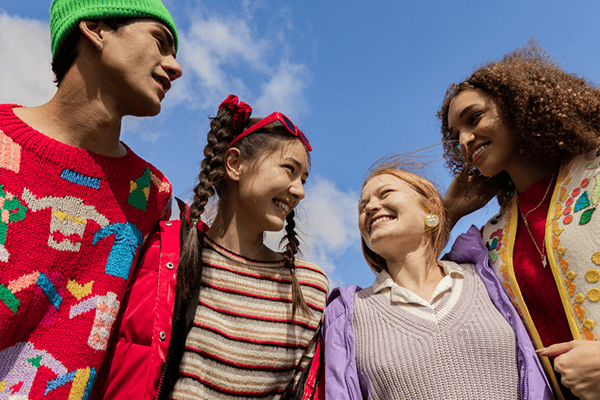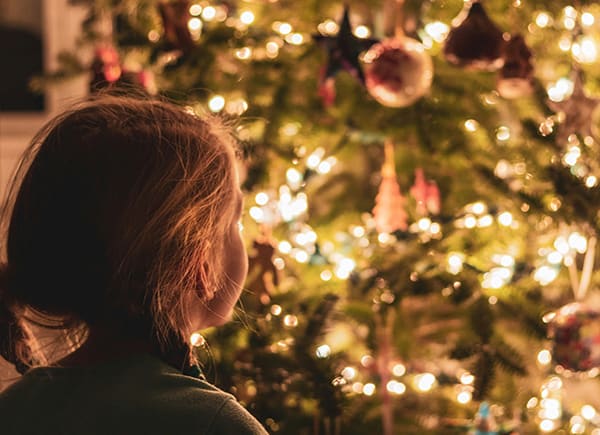
I’ve always been a black & white person. Right or wrong… for or against… I’ve known where I stand. In my high school yearbook, one of the superlatives my classmates used to describe me was “opinionated”. Which was pretty fair.
But foster care has changed all that.
After almost five years as a foster mom, there are many things turned grey for me.
Not in terms of beliefs or values that I hold. But the way I see people has been forever altered. Looking back, in the same way a yearbook takes single words or phrases and uses them to sum up the whole of a person, I spent a lot of years viewing people in this rigid way. And really isn’t that what we do as society? Make people all or nothing? Heroes or villains? Media portrays people this way. Political figures are definitely characterized as good or evil, depending on your leaning. We are quick to embrace others— or write them off— for the 2D way we see them.
This is the mindset I brought into foster care. The people who lost their children due to abuse and neglect were villains. I, on the other hand, wanted to become one of the difference makers, the world changers, the heroes… the foster parents! But then I began fostering. I met biological families. I heard stories, watched struggles, encountered mental illness & addiction, and came face-to-face with lots of hurt, sorrow, and brokenness that stretched back for generations. Suddenly, everything became much more complex. I have only personally encountered one or two cases while fostering where the actions against a child were so disturbing or malicious the needed outcome of a case seemed clear from the outset. In all the other situations, time combined with choices ultimately determined the direction a case went, and many times I felt conflicted about how I felt towards the outcome.

Once my eyes began to open to how complex foster care situations are, I found myself wanting to understand more. I felt drawn to things that helped me understand other people’s experiences. One rainy night I sat down and watched the Netflix movie “Recovery Boys” about a group of young men seeking treatment for their opioid use. In this documentary, I couldn’t help but sympathize with the men trying to beat back their addictions. One of the men has two little girls in foster care, and it’s eye opening to watch him struggle with his desire to be there for his girls, while at the same time barely able to stay clean and hold himself together. He’s not a bad guy or a terrible father, but you can see his addiction has disabled him.
It might seem strange, but every couple of months I get on some of the anti-foster care websites and Facebook pages. I just scroll and read, but I don’t ever comment. That’s not what I’m there for. I rarely agree with the information or ideas expressed. But I read it anyway to try to understand the pain and frustration of losing kids. I hear the distrust, the confusion of being asked to fix things not perceived as needing to be fixed, and the feeling the world wants you to fail. Most of these websites view foster parents negatively, but even as a foster mother, I can look past that and see how much of what is posted is rooted in pain. It’s a muddy kind of grey feeling for me— Not really agreeing, but a large part of my heart still sympathetic to the emotions and back stories behind it.
Because parents aren’t villains.
And I’ve made up my mind no one in foster care is a hero either. Not really. Yes, there are case workers and guardian ad litems who go above and beyond their job descriptions. I meet foster parents who love child after child, even though their hearts are broken by the goodbyes. And some biological parents work tirelessly to overcome the hardest of situations to make their homes safe for their children again. There are many, many heroic moments in foster care. But no one gets to play the part of the hero. Foster care is too complex for that.
More than ever, I’m convinced we need to seek out opportunities to hear and understand other people. How can we see what is in the best interest for a child in foster care if we are blinded by our own perspectives and experiences? We have to break away from the trends of lecturing and judging one another from behind our own comforts and genuinely care about others as people. No one says it better than Jason Johnson,
“The birth parents we struggle to show grace to today were likely the kids 20-30 years ago we would have considered it a joy to foster”.
I love that Jason acknowledges it is a struggle— it reminds me that while grace for others doesn’t come easy for anyone, we are doing well as foster parents if we live in tension. I’ve had to learn to wrestle with some confusing situations and be okay with there not always being a clear cut answer. People aren’t villains or heroes— we just aren’t that one dimensional, and it would do us well to stop viewing each other that way.
Maybe then biological families would feel like others were hoping for them to succeed. And people would stop thinking they have to be super parents to foster. In general, I think we would become more understanding and compassionate communities. We’d definitely set a better example of grace and acceptance for kids in foster care who are learning from us.
Without a doubt, some things in life ARE black & white, right or wrong, good or bad.
But there’s a lot of layers in this 3D life, and in the world of foster care, a whole lot of grey too.



